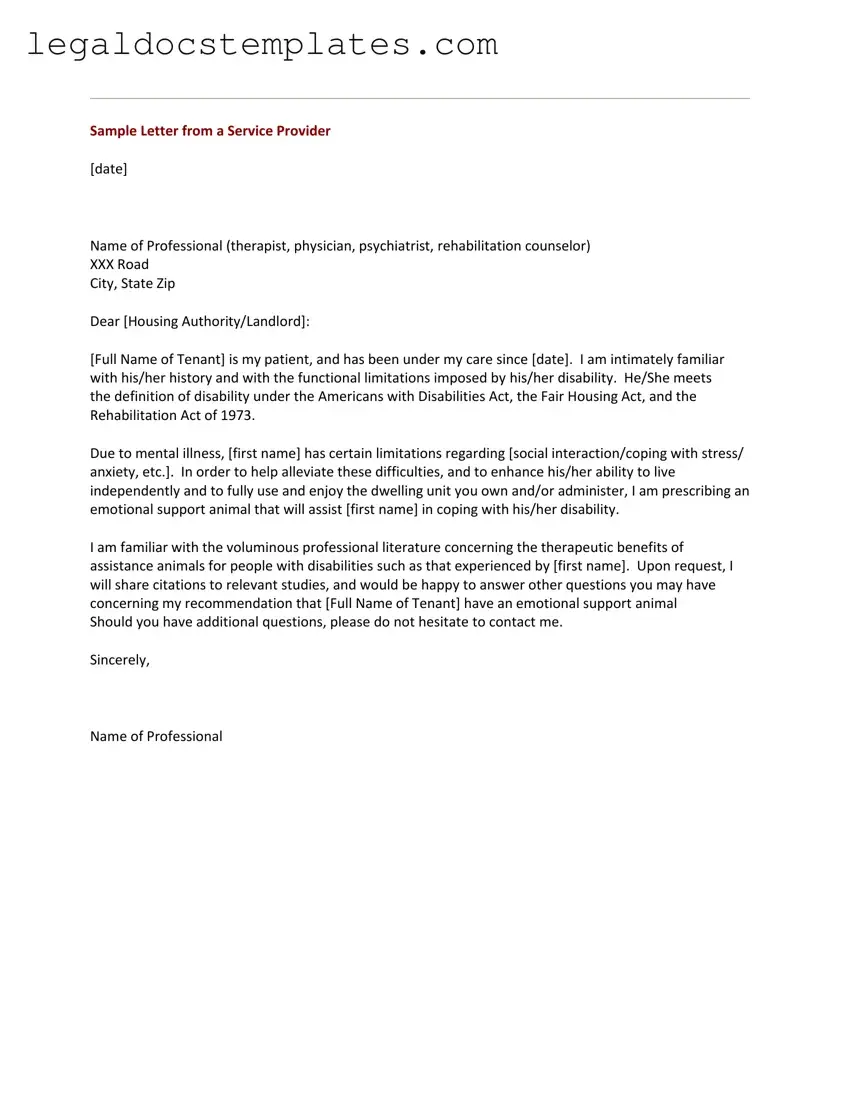Fill Out Your Emotional Support Animal Letter Template
An Emotional Support Animal Letter is a document prepared by a licensed mental health professional. It states that a person's pet provides them with emotional support and alleviates symptoms of their disability. If you believe your furry companion plays a crucial role in your well-being, consider filling out the form by clicking the button below.
Access Emotional Support Animal Letter Now

Fill Out Your Emotional Support Animal Letter Template
Access Emotional Support Animal Letter Now

Access Emotional Support Animal Letter Now
or
⇩ PDF Form
Don’t spend hours on this form
Complete Emotional Support Animal Letter online in minutes, fully digital.
